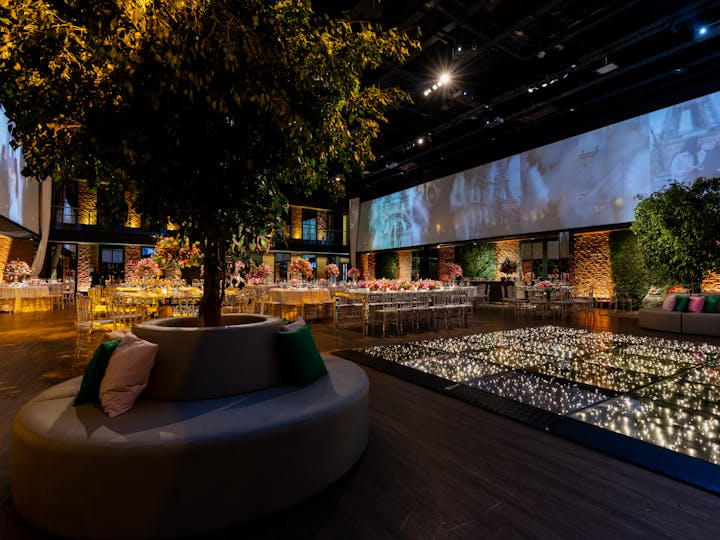When planning an event, one of the most important factors to consider is the accessibility of the venue. Ensuring that all of your attendees, including those with mobility, sensory, and neurodiversity needs, can enjoy the event without difficulty is essential. The goal is to create an inclusive environment where everyone feels welcome and can participate fully.
Choosing the right venue isn’t just about location, size, or cost—it’s about making sure that all your guests, no matter their needs, can access the space and feel comfortable throughout the event. Whether you’re scouting party venues in New York or looking for a more intimate gathering space, understanding how accessible a venue truly is can make all the difference.
Before you sign a contract, you need to ask the right questions. Many venues might check off a few accessibility boxes, but it’s important to look deeper and ensure the venue accommodates all needs. Let’s walk through the key aspects to focus on when choosing an accessible venue for your next event.
1. Mobility and Physical Accessibility
When we talk about accessibility, the first thing that often comes to mind is physical access. For individuals with mobility issues, having the ability to enter, navigate, and move around the venue is crucial. This includes ramps, elevators, wide doors, and accessible seating.
For venues such as party venues in New York, many historic buildings may have architectural restrictions that affect accessibility. Make sure the venue has ramps or elevators to accommodate people who use wheelchairs or walkers. Also, check if the bathrooms are accessible, with sufficient space to navigate comfortably and safety features such as grab bars.
It’s also important to look at the layout of the venue. If you have multiple rooms or areas, are there clear pathways for people to travel between them? Be mindful of stairs, narrow hallways, or spaces that might be hard to navigate. Some venues may even offer assistance such as staff on hand to help direct guests in case of mobility challenges.
2. Parking and Drop-Off Areas
Parking accessibility is often overlooked, but it’s crucial to make sure that your attendees can park easily and get to the venue without hassle. Ask if the venue provides designated accessible parking spaces close to the entrance. These spaces should be clearly marked and wide enough for people to get in and out of their vehicles, especially for individuals who may need extra space to open car doors or use mobility devices.
If the venue is in a busy area, such as downtown New York, make sure to ask about nearby parking facilities or drop-off zones. For those using public transportation, are there nearby bus or subway stations that are wheelchair accessible? Ensuring that your venue is accessible both on foot and by car will make it easier for all attendees to arrive stress-free.
3. Sensory Accessibility
For many individuals with sensory issues, such as those on the autism spectrum or those with sensory processing disorders, the sensory environment of a venue is incredibly important. Loud noises, bright lights, and overwhelming smells can all impact the experience and make it difficult for these individuals to enjoy the event.
When scouting venues, ask about lighting and sound levels. Can the lights be dimmed or adjusted to create a more comfortable environment? Does the venue offer quiet areas or rooms where people can retreat if they need a break from the noise or crowded areas? This is especially important if your event includes loud music, announcements, or large groups of people.
Additionally, consider if the venue offers any accommodations like sensory-friendly materials or equipment, such as noise-canceling headphones or quiet spaces. Some venues may even have experience hosting sensory-friendly events and can guide you in making adjustments that will create a more comfortable atmosphere for everyone.
4. Neurodiversity Considerations
It’s essential to ensure that your venue can accommodate people with neurodiversity, such as individuals with ADHD or learning disabilities. For these attendees, clear signage, straightforward layouts, and a lack of overwhelming distractions can significantly improve their experience.
When evaluating a venue, consider how easily attendees will be able to find their way around. Are the signs clearly visible and easy to understand? Do they use symbols or large fonts to help people quickly navigate the space? A venue that provides an organized, clutter-free environment will ensure that everyone, regardless of their cognitive needs, can engage with the event without feeling disoriented.
In addition, ask if the venue offers any specific services for neurodiverse guests, like accessible maps or staff who are trained to assist with different needs. Creating a space that caters to neurodiverse individuals may require small adjustments but can have a big impact on the overall inclusivity of your event.
5. Communication and Support Services
Having a venue that is equipped with support services can greatly enhance the accessibility of your event. For instance, some venues offer sign language interpreters, real-time captioning, or assistive listening systems that can help guests with hearing impairments.
Another important feature to inquire about is the availability of on-site staff who are trained to handle accessibility issues. A well-trained staff will not only assist with physical accommodations but also offer guidance and support for guests who may need extra help throughout the event. For larger venues, consider if they offer personal guides to assist people with mobility issues or other special needs.
Don’t hesitate to ask whether the venue has experience hosting events for individuals with disabilities. The more experience a venue has with accessibility needs, the more likely they will be able to offer practical solutions that make your event more inclusive.
6. Flexibility in Accommodating Your Event’s Needs
Every event has unique requirements, so you need a venue that is flexible in meeting those needs. For instance, if you are hosting a conference or large gathering, you may need the space to adjust seating arrangements to accommodate mobility aids, such as wheelchairs or scooters. Ask about the venue’s flexibility with furniture arrangement and whether they can adapt the space based on specific accessibility needs.
Some venues also allow you to bring in additional accommodations, such as temporary ramps, extra seating, or mobile assistive technologies. Ensure the venue allows for these adjustments, and ask if there are any restrictions on bringing in your own equipment. The more adaptable the venue is to your specific needs, the better.


